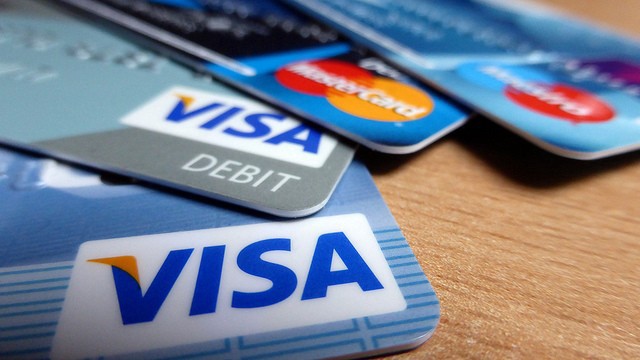A Thoughtful Response to the Idea of Maxing Out Your Credit Cards in Your 20s

Earlier this year, an Elite Daily blogger wrote a piece titled “If You Have Savings In Your 20s, You’re Doing Something Wrong,” and Ester gave it the response it deserved:
But even assuming she’s speaking only for her sliver-of-a-sliver-of-a-subset of attractive, young, healthy, relatively self-sufficient professional urban women without dependents, student loans or any financial responsibilities at all, her logic doesn’t hold. You’re only stuck renting for the foreseeable future, for example, if you don’t amass a down payment. And why wouldn’t you if you could? What’s un-fun about being independent of the whims of your landlord and the vagaries of the housing market?
Today, Kim Chi Ha provides similar advice in a Washington Post piece titled “Don’t Stress About Your Debt. Go Ahead and Go Broke in Your 20s,” which takes the advice to not accumulate any savings and compounds it with the even better advice to max out all your credit cards:
I started to put living on credit. I didn’t have a 9 to 5 job. I had absolutely no time constraints, and no responsibilities to anyone. I figured as I got older, it would be harder for me to travel. Life would get in the way, so why not go now, and worry about the debt later? So I did just that.
[…]
If there were plans to travel somewhere on the horizon, I went because I knew, no matter how high my credit card debt got, I’d be able to pay it off. I knew when the time came, and I had no other choice, I’d settle.
Let’s just say, from the Good Financial Advice Perspective: maybe don’t do this? If you can’t find a steady job in your 20s, there are plenty of other options besides going to Coachella and Vegas and Florence and maxing out your credit cards. You could, for example, become a long-haul trucker. Or you could follow Jen Dziura’s advice and figure out how to become an entrepreneur.
Of course, in my case becoming an entrepreneur-slash-freelancer did in fact come with its own side of credit card debt, which I am currently paying off by setting aside 20 percent of my pre-tax income specifically for debt repayment. So I sympathize with Kim Chi Ha’s perspective, to an extent — if you don’t have money, what are you going to do, sit at home and stare at the wall? I used credit to get things done, and I used credit to get me to places where I could build relationships with the people who gave me jobs. I didn’t use credit to go to Coachella, but I did put a JoCo Cruise booking on my Ann Taylor Loft MasterCard, and then the JoCo Cruise team hired me to write for them.
Now both Kim Chi Ha and I are earning enough money to be able to finance our lives with something besides credit. It took her two years to fully pay down her debt, and it’ll take me about the same. In my case, I know that I worked very hard to get to where I am, and I know that I paid to put myself “in the right place at the right time,” and I also know that I am one of the lucky ones; that another person could rack up the same amount of debt and not come out of it with a $60,000-year freelance writing career.
I also understand, in a way that I wish I didn’t, the idea that if you can’t make it financially in the way that is expected of you, your options are either:
1) Feel bad about yourself
2) Find ways to celebrate and normalize your lived experience
That’s why we’re seeing articles like “it’s okay to not have savings!” and “it’s okay to max out your credit cards!” If that’s what your life is, you have to figure out a way to get okay with it pretty quickly. I used to be a person who spent my after-work hours sitting at home and staring at the wall so that I could save $10,000. Then I was a person whose life completely changed, and credit cards seemed like the smartest option I had available. I had to be okay with being both of those people, because self-hatred is a time suck.
So that’s my response to the Washington Post article advising Millennials to “go broke.” (It’s interesting that this piece came out around the same time that Finland announced it was testing a Basic Income plan because its residents aren’t earning enough money either.) We’ve had a lot of stories this week about young people who are trying to get their lives started but can’t find steady work or have an overwhelming amount of debt — you did read Ester’s interview with Katie Klabusich, right? — which means we can expect to see a lot more essays like Kim Chi Ha’s, as all of us try to explain our own financial lived experiences and how we made our lives work with the resources available to us.
But once more, from the Good Financial Advice Perspective: please do not max out your credit cards just so you can go to Vegas with your friends.
Photo credit: Sean MacEntee
Support The Billfold
The Billfold continues to exist thanks to support from our readers. Help us continue to do our work by making a monthly pledge on Patreon or a one-time-only contribution through PayPal.
Comments